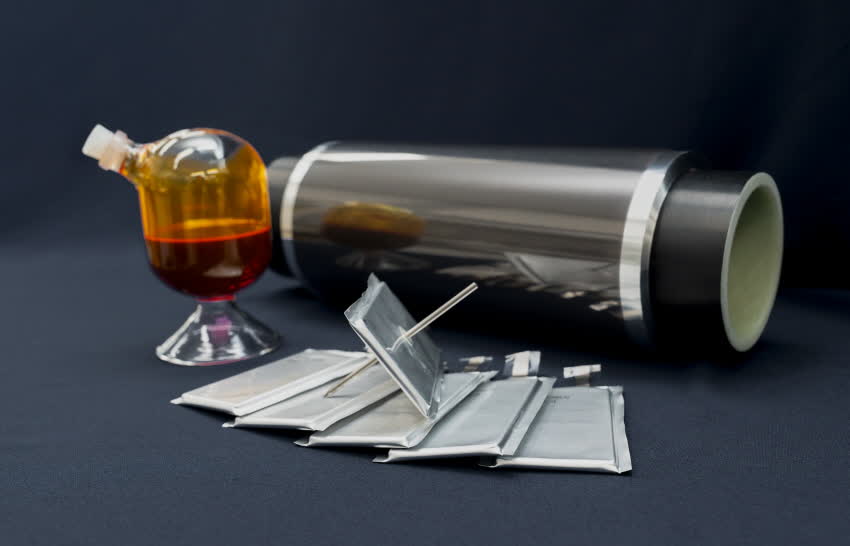Something to look forward to: LG Chem has developed an innovative thermal runaway suppression material that could greatly reduce the risk of fire in lithium-ion batteries. A leading cause of battery fires, thermal runaway occurs when the anode and cathode inside a battery unintentionally come into contact with each other. The interaction causes a short circuit and generates an immense amount of heat, often resulting in fire.

Formally referred to as a Safety Reinforced Layer (SRL), the composite material measures just one micrometer thick – or about 1/100th the thickness of a human hair. It is designed to sit between the cathode layer and the current collector (an aluminum foil that functions as a pathway for electrons) in a battery and acts as a temperature-sensitive fuse.
When a battery's temperature rises above its normal operating range (usually between 90 degrees Celsius and 130 degrees Celsius), the SRL reacts and alters its molecular structure to suppress the flow of current. According to LG Chem, the material's electrical resistance increases by 5,000 ohms for every one degree Celsius increase in temperature. It is also reversible, meaning current can flow normally again once temperatures come back down.
In impact and penetration tests, batteries equipped with SRL were either able to prevent a fire outright or extinguish it shortly after flames first appeared, circumventing a thermal runaway event.
This is not the first attempt to use a temperature-responsive material in a battery for safety, but it may be the most successful. As LG Chem highlights, earlier methods resulted in reduced energy density and had slow reaction times.
The tech might even make it to market in the near future. LG Chem has already completed safety verification testing with mobile batteries and expects to do the same with large-capacity EV batteries in 2025.
Lee Jong-gu, CTO of LG Chem, said the material can be applied to mass production in a short period of time. "We will enhance safety technology to ensure customers can use electric vehicles with confidence and contribute to strengthening our competitiveness in the battery market."
A paper on the subject titled, "Thermal Runaway Prevention through Scalable Fabrication of Safety Reinforced Layer in Practical Li-ion Batteries," has been published in the journal Nature Communications.
Breakthrough material from LG Chem could prevent thermal runaway in batteries